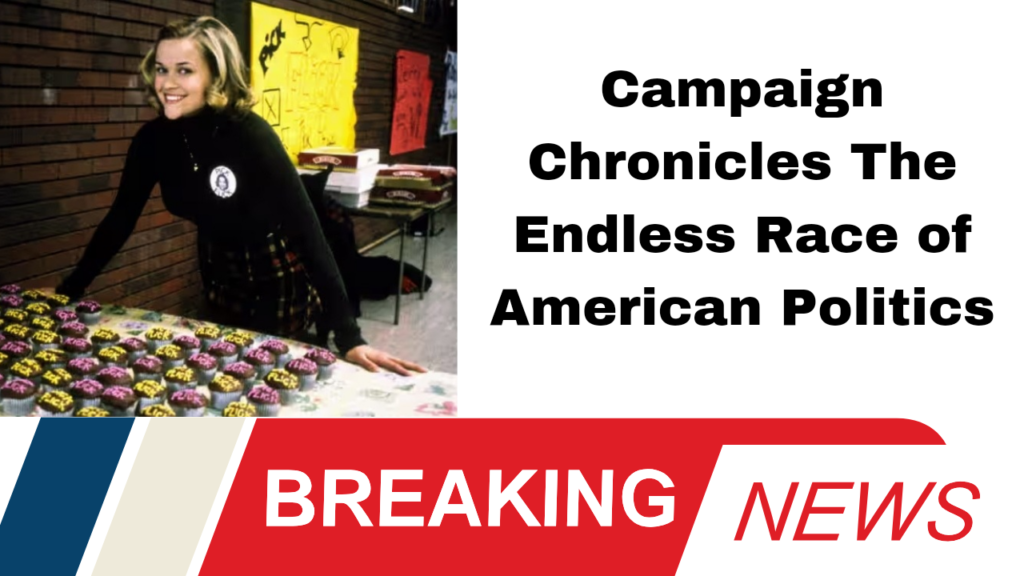The U.S. presidential election dominates the news cycle, drawing attention not just every four years but consistently throughout the interim. This urgency is driven by the significant consequences of these races, including numerous down-ballot elections that often go unnoticed. Yet, the cinematic portrayal of these electoral battles frequently falls short, oscillating between dramatic earnestness and tepid comedy.
One of the most notable films, All the King’s Men (1949), captures the relentless nature of political campaigning through the journey of Willie Stark (Broderick Crawford), a character inspired by Louisiana’s Huey Long. While some story elements may feel outdated, Stark’s obsession with his campaign resonates even today, emphasizing how campaigning becomes a man’s lifeblood rather than just a means to an end.
Fast forward to 1972’s The Candidate, where Bill McKay (Robert Redford) transitions from underdog to winner, illustrating how idealism can be crushed by the machinery of politics. This shift toward a lack of clarity in political messaging is a trend that modern audiences might find discomforting.
Recent adaptations and original films often seem repetitive, lacking fresh insights. For instance, George Clooney’s The Ides of March (2011) echoes themes from earlier decades, while Primary Colors (1998), despite a star-studded cast, failed to resonate beyond its initial release. The same fate befell The Front Runner (2018), which chronicled Gary Hart’s downfall in the face of tabloid scrutiny but offered little beyond surface-level commentary.
The late 1980s saw a rise in election-themed comedies, largely influenced by a resurgence of political satire on platforms like Saturday Night Live. However, many of these films, such as Speechless (1994) and Black Sheep (1996), missed the mark, opting for clichéd tropes instead of insightful satire.
While Bulworth (1998) attempted to blend humor and political commentary, it too often veered into absurdity. The difficulties in capturing the complexities of elections in a comedic format became evident, especially in films like Jon Stewart’s Irresistible (2020), which struggled to find relevance in a post-2016 political landscape.
After decades, Election (1999) stands out as the quintessential American political film. By framing the race as a high school contest, it brilliantly encapsulates the pettiness and self-deception that characterize political ambitions. Reese Witherspoon’s portrayal of Tracy Flick, a hyper-competent candidate, has even been likened to real-life political figures, illustrating the film’s enduring relevance.
Interestingly, films like Nashville (1975) and Licorice Pizza (2021) adopt a more nuanced approach, embedding elections within their broader narratives. This technique reflects how elections permeate everyday life, suggesting that they are more about atmosphere than straightforward action. Such portrayals remind us that campaigns can feel perpetual, representing both continuity and uncertainty in the democratic process.
Ultimately, films about elections reveal deeper truths about the political landscape. They emphasize that the essence of a campaign often extends beyond the final vote, embodying a prolonged struggle that echoes throughout society. As we continue to navigate this complex arena, the challenge remains: how to convey the urgency and significance of these electoral battles without falling into familiar traps of cliché and oversimplification.











More Stories
Netanyahu Under Fire as Leaked Documents Scandal and Hostage Crisis Deepen
Mount Fuji’s Snowless Peak A Sign of Climate Change and Japan’s Cultural Icon in Crisis
Malik Mumbai’s 15 Crore Monthly Income ‘Haar Meri Jeet Apki Offer’ for WBBL 2024 Your Guaranteed Win or Refund!